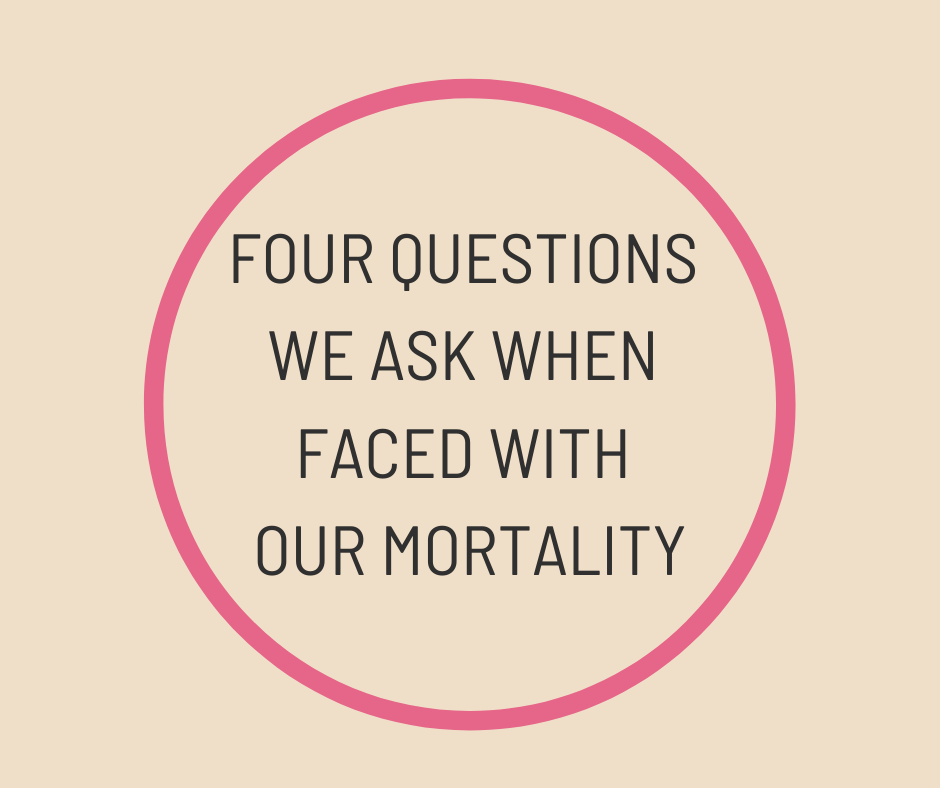Since my new booklet A Place In My Heart, When a Pet Dies has come out I have had several questions about children and pet death. It got me thinking about how we parents tend to protect our children from the harshness of life. Dying and death is one of the harshest, least understood parts of living. In our avoidance, we often make up stories or simply don’t talk about death. We do this rather than address the area we ourselves don’t understand and are afraid of.
The death of a pet is a great opportunity for a life lesson. As parents part of our job is to give our children life skills, to prepare them for all that a normal life will present. The death of a pet gives us an opportunity to teach our children the normal-ness of death, to show them what it looks like, to have the opportunity to touch the body, to learn the difference between living and being dead, to experience how tears and words make us feel.
Wouldn’t it be convenient if there was a parent’s handbook for teaching life skills. A “how to” book on dealing with dying and death would be a necessary chapter. Here is what I would put in that chapter. We need to be direct, open and truthful in our sharing. "Fluffy died. He was sick and the doctors just couldn't fix him. Everything and everybody dies some day. That is part of life and it must have been Fluffy’s time. This is so sad. We will miss him so much. He was a very special part of our life."
Something like that is a good start, an opening to get the conversation going. Questions will come and you should answer them honestly. It is okay to say “I don’t know”, that is part of honesty. The questions will correspond to the age of the child and so should our answers. Just remember to be honest, no made up stories to "protect" the child from the realities of living. At the same time you don’t need to expound upon details not asked about. It is like sex education, meet them where their curiosity is but don’t venture into unthought of territory.
Allow the child to see and hold the dead animal. This gives them the opportunity to directly say goodbye, to see what being dead looks like, feels like. We hold, we cry, we say goodbye.
Then comes the burial. Let the child be part of planning. Where, how to prepare the body (special blanket or towel, flowers, dog or cat treats, whatever shows our love and thoughtfulness). Do you want to put a favorite toy with them? You may want to keep the favorite toy for awhile rather than bury it with the animal. But talk about ideas and make decisions together. Being included in the burial preparations, as well as the actual burial, helps with grieving and closure.
In addressing grief setting up a memorial often helps give our grief a place. Look at pictures, reminisce, share stories and share tears. Do you see how normalizing death, by participating in the creating of a ritual for our children, you are building a foundation for ideas and most importantly the emotional security for when death comes to a person?
Something more... about Explaining Pet Death to Children
Reading A Place In My Heart, When a Pet Dies, will help you and your family navigate the stormy waters of what to expect when your pet is dying and after she dies. Do you know the signs of approaching death in a pet? Do you, or someone you know have an older pet or a pet who has a life threatening illness? If so, this book is for you.








4 comments
Beverly
My dog is 13 years old, his health is noticeably failing, but his personality remains strong . My grandchildren have had him in their lives since they were 11 and15, ,they are still "expecting "to have him around for another 12 years. It has been very helpful to me to read about how to handle the situation when it ( the death) happens.
My dog is 13 years old, his health is noticeably failing, but his personality remains strong . My grandchildren have had him in their lives since they were 11 and15, ,they are still "expecting "to have him around for another 12 years. It has been very helpful to me to read about how to handle the situation when it ( the death) happens.
Sharon Riek
Barbara, Thank you SO much for addressing this issue of how to tell children. I mentioned to you that a neighbor had a 14 yr. old. dog declining and young children & didn’t know how to deal with it. I haven’t seen them walking him lately so will check with them as soon as I can. I might order one booklet for them if I think they need it.
We’re 70 now and rarely have interaction with folks with younger children unless they are neighbors.
I thank you so much and will always come to your site when I need to help a friend or family through something – you are the BEST!
Big Hugs, Sharon
Barbara, Thank you SO much for addressing this issue of how to tell children. I mentioned to you that a neighbor had a 14 yr. old. dog declining and young children & didn’t know how to deal with it. I haven’t seen them walking him lately so will check with them as soon as I can. I might order one booklet for them if I think they need it.
We’re 70 now and rarely have interaction with folks with younger children unless they are neighbors.
I thank you so much and will always come to your site when I need to help a friend or family through something – you are the BEST!
Big Hugs, Sharon
Cathy
Dear Barbara,
Thank you, thank you, thank you for this timely message. Last Thursday, September 13, we had to put our 15 year/4 months old yellow lab Bailey down. Now I am a full grown adult with 2 full grown children (30 & 35). Your comments were so helpful to us so I KNOW children would also benefit! My friend’s 4 children ages 8,7,3 1/2, 2 were very close to Bailey. Then surprise-visited to bring me flowers on Sunday when I was still grieving “heavily”
I tried to hold my tears in but could not and was worried they either wouldn’t understand my tears, but they reacted appropriately with hugs, kisses, flowers, and asked where Bailey was😢 I wasn’t technical with my explanation to the kids, but I didn’t paint a rosy “All Dogs Go To Heaven” scenario either! I met them where they were and gave them the amount of info I felt was age appropriate. Today the kids were over again. They happily played with the stuffed puppy dogs I have resembling Bailey & her brother Bogart who passed 2 1/2 years ago, looked at pics of Bailey & Bogart, and when playing”puppies”, the kids all wanted to be named Bailey. What a healing day for me from children💕❤️
Dear Barbara,
Thank you, thank you, thank you for this timely message. Last Thursday, September 13, we had to put our 15 year/4 months old yellow lab Bailey down. Now I am a full grown adult with 2 full grown children (30 & 35). Your comments were so helpful to us so I KNOW children would also benefit! My friend’s 4 children ages 8,7,3 1/2, 2 were very close to Bailey. Then surprise-visited to bring me flowers on Sunday when I was still grieving “heavily”
I tried to hold my tears in but could not and was worried they either wouldn’t understand my tears, but they reacted appropriately with hugs, kisses, flowers, and asked where Bailey was😢 I wasn’t technical with my explanation to the kids, but I didn’t paint a rosy “All Dogs Go To Heaven” scenario either! I met them where they were and gave them the amount of info I felt was age appropriate. Today the kids were over again. They happily played with the stuffed puppy dogs I have resembling Bailey & her brother Bogart who passed 2 1/2 years ago, looked at pics of Bailey & Bogart, and when playing”puppies”, the kids all wanted to be named Bailey. What a healing day for me from children💕❤️
Donna Gustavson
As always, I appreciate the subject and your thoughts. I spent a moment thinking about my earlier life, my children (now 34 and 33), the variety of critters that lived in our home over the years and there are some that were far more difficult than others. Memories attached to saying goodbye to the goldfish via the white porcelain bowl, the hamster in the box buried in the backyard, our first family dog’s body (14yrs) leaving with the vet and other pets were met with varying degrees of grief.
I would respectfully suggest that the term closure may be too final a term for some….. I believe some grieving may never ‘finish’, for me personally, I think I’ve simply adjusted my life to support my losses – if that makes sense.
With gratitude for your work to enlighten on this tough topic,
Donna
As always, I appreciate the subject and your thoughts. I spent a moment thinking about my earlier life, my children (now 34 and 33), the variety of critters that lived in our home over the years and there are some that were far more difficult than others. Memories attached to saying goodbye to the goldfish via the white porcelain bowl, the hamster in the box buried in the backyard, our first family dog’s body (14yrs) leaving with the vet and other pets were met with varying degrees of grief.
I would respectfully suggest that the term closure may be too final a term for some….. I believe some grieving may never ‘finish’, for me personally, I think I’ve simply adjusted my life to support my losses – if that makes sense.
With gratitude for your work to enlighten on this tough topic,
Donna